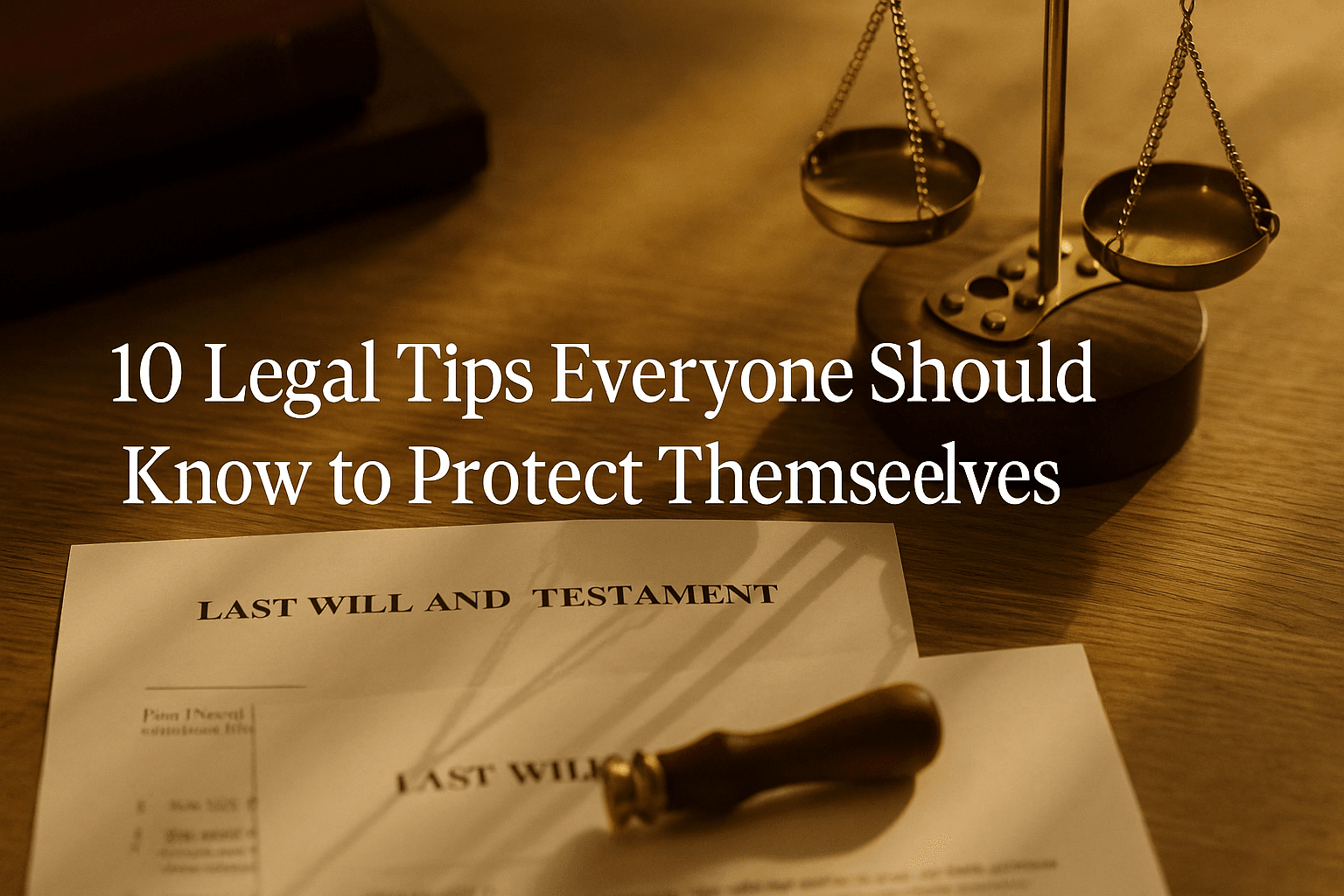Legal problems don’t just happen in courtrooms — they happen in everyday life.
From signing rental contracts to handling car accidents or online purchases, knowing a few practical legal basics can save you time, money, and stress.
As someone who’s worked closely with lawyers and consumer protection experts, I’ve learned that most legal headaches are preventable — if you know what to look out for.
Here are 10 must-know legal tips that every adult should understand to stay protected and confident.
1. Always Read Before You Sign
It sounds obvious, but most people skip it.
Never sign a document — lease, contract, or policy — without reading every line.
If there’s something you don’t understand, ask or delay signing.
A few minutes now can save months of regret later.
2. Know Your Tenant and Landlord Rights
Renting a home? You have rights — and responsibilities.
Check your country or state’s tenant laws regarding:
- Deposit refunds
- Repair obligations
- Eviction notice periods
Understanding these prevents unfair treatment and unnecessary legal battles.
3. Keep Written Records for Everything
In legal disputes, evidence wins.
Keep screenshots, emails, and text messages related to transactions or conflicts.
Written proof often turns a “he said, she said” into a clear case.
If it’s not written, it’s as if it never happened.
4. Understand Online Purchase Protection
Online scams are growing fast.
Always buy from verified sellers and check refund policies.
If you pay with credit card or PayPal, you’re often covered under buyer protection laws.
Avoid direct bank transfers unless you completely trust the seller.
5. Know Your Rights After a Car Accident
Stay calm and protect yourself legally:
1️⃣ Take photos of the scene
2️⃣ Exchange information (ID, insurance)
3️⃣ Never admit fault on-site
4️⃣ Call your insurance company and file a report immediately
Even a small mistake in wording can be used against you later.
6. Keep Personal Data Private
Data privacy is now a legal issue.
Think twice before sharing your ID, address, or financial details online.
Use strong passwords and avoid public Wi-Fi for transactions.
Your digital security is part of your legal protection.
7. Be Careful What You Post Online
Defamation and copyright laws apply to social media, too.
Avoid sharing false information or copyrighted material without permission.
One careless post can turn into a lawsuit.
8. Understand Employment Contracts
Before signing a new job offer, check for:
- Non-compete clauses
- Confidentiality agreements
- Termination conditions
If unsure, have a lawyer review it. Many people lose benefits simply because they didn’t understand their own contract.
9. Know Consumer Warranty Laws
When products break or services fail, you may have legal protection for refunds or repairs.
Check warranty periods and consumer rights before giving up or paying twice.
In many countries, even “non-refundable” items have exceptions by law.
10. Plan Ahead: Create a Simple Will
No one likes to think about it — but having a basic will or estate plan ensures your assets go to the right people and prevents family disputes.
Many countries allow free or low-cost digital will registration.
Planning isn’t pessimism — it’s protection.
⚖️ Final Thoughts
You don’t need to be a lawyer to protect yourself — just informed.
Understanding a few basic legal principles keeps your finances, privacy, and reputation safe.
Laws aren’t meant to intimidate you — they’re meant to empower you.
Start with these 10 steps, and you’ll navigate life with more confidence and fewer legal surprises.
